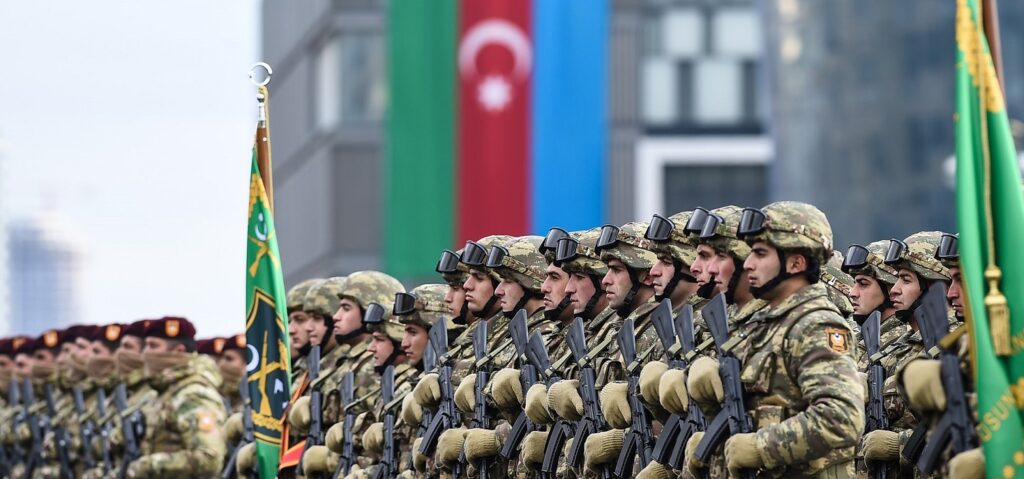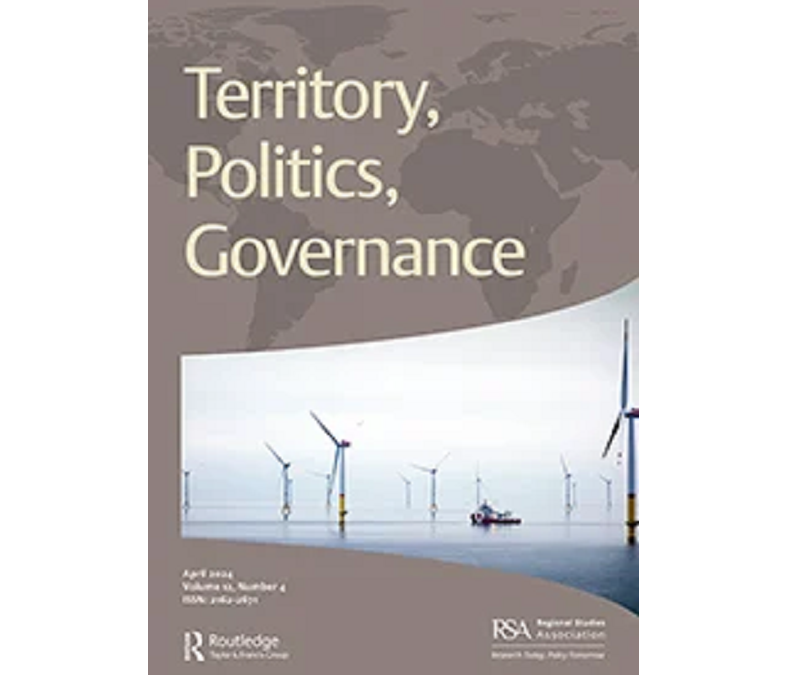E5: Patronage and Strategic Competition in Secessionist Conflicts
Prof. Dr. Rafael Biermann and PhD candidate Géza Tasner (FSU)

Foto: 1st Army Corps at the Victory Parade, Baku, Azerbaijan, 2020 © Official web-site of the President of the Republic of Azerbaijan, Creative Commons Attribution 4.0
Project description
Strategic competition is on the rise again in Europe and worldwide, as the United States’ brief period of hegemony in the post-Cold War era comes to an end. China has emerged as a new global superpower, while Russia has been attempting to restore its influence in its “near abroad” and beyond. The European Union, while lacking its own military, has become a key player in the European security nexus and states such as Iran, Saudi Arabia and Turkey are seeking strategic advancement in regional dominance. In this multipolar configuration, both the extent of contested spheres of influence and the intensity of strategic competition increases, resulting among others in a new arms race and even in proxy wars such as those in Syria or Yemen. External support by Western powers for Ukraine in the ongoing Russian invasion is also primarily motivated by strategic interest.
These conditions also have implications for the secessionist conflicts throughout Europe and the post-Soviet space. These conflicts tend to occur in contested geopolitical spaces and involve external powers as patrons of the opposing sides. These patrons are often strategic rivals, such as the US and Russia in the case of Kosovo, or Russia and Turkey in the Nagorno Karabakh. Their pursuit of strategic objectives do play a significant role in these conflicts. This project seeks to explore the dynamics of strategic competition over time within the same case and across various cases. The goal is to investigate how patron states exploit secessionist conflicts and how the presence of strategic competition among them shapes the conflict and its potential outcomes.
Key questions
Methodology and sources
- Co-variational comparative case study analysis
- Document analysis and process tracing
- Semi-structured qualitative interviews
Project team

Prof. Dr. Rafael Biermann

Géza Tasner, MA
Related publications
Konflikt und Kooperation im östlichen Europa (KonKoop)
![]() Mohrenstr. 60
Mohrenstr. 60
10117 Berlin![]() +49 (0) 30 2005949-51
+49 (0) 30 2005949-51








